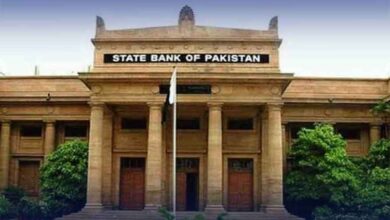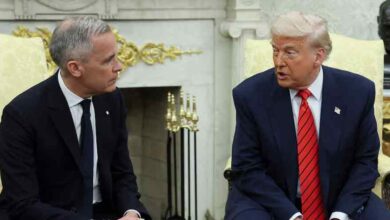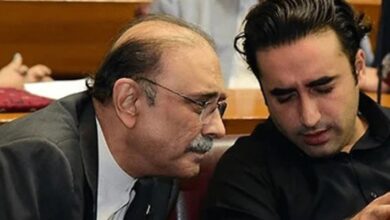ISLAMABAD: Minister for Finance and Revenue, Senator Muhammad Aurangzeb, delivered a keynote address at the Jefferies’ ‘Pakistan Access Day’ interactive conference co-hosted by KTrade Securities in London on Thursday.
The event brought together a distinguished audience comprising top global institutional investors, senior executives from leading international banks, investment firms, and professionals from both the public and private sectors, said a press release.
The Adviser to the Prime Minister on Privatization, Muhammad Ali, also attended and addressed the forum, which served as a vital platform to showcase Pakistan’s economic progress and investment outlook to the international business community.
Senator Aurangzeb underscored the government’s firm commitment to macroeconomic reform and structural transformation and the government’s resolve to stay the course to bring permanence to this macroeconomic stability.
He stated that the country had made substantial progress toward achieving macroeconomic stability, with key economic indicators now reflecting improved resilience and discipline.
“We have successfully navigated a period of significant external and domestic challenges, and Pakistan today stands on the foundation of restored macroeconomic stability,” the Minister noted.
“Through bold and far-reaching reforms, we have reinstated fiscal discipline, strengthened our external position, and rebuilt investor confidence.”
He highlighted that Pakistan posted a primary budget surplus of Rs 3.6 trillion during the first half of FY2025, while inflation has seen a remarkable decline—reaching just 0.3% in April 2025, the lowest level recorded in over a decade. These gains, he added, have been acknowledged internationally with Fitch upgrading Pakistan’s sovereign credit rating from CCC+ to B-, reflecting renewed market confidence.
Looking ahead, Senator Aurangzeb outlined Pakistan’s ambitious economic targets, including 6% annual GDP growth by persisting with structural reforms in taxation, energy, SOEs, privatisation, pension and public finance, an expansion of exports to USD 50 billion, inflation moderation to 6%, and the development of a USD 5 billion ICT freelancing industry.
Additionally, Pakistan aims to cut greenhouse gas emissions by 50%, raise the share of renewable energy to 10%, and reduce income poverty by 13%, he added.
He emphasized that these goals are embedded within the Government’s comprehensive “5Es Framework”—focusing on Exports, E-Pakistan (IT), Environment & Climate Change, Energy & Infrastructure, and Equity, Ethics, and Empowerment.







